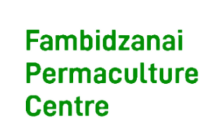CONTEXT OF THE PROJECT
The focus of this current project is to build the capacity of local agriculture extension agents through the provision of formal agroecology learning. Through various participatory approaches, the agents are expected to then facilitate the transfer of permaculture skills and knowledge to the communities they are working with.
From the project design; the extension agents are the starting point for a series of changes and processes that will see the communities achieving food security and later sovereignty through access to agroecological skills and practices shared to them by the extension agents who would have undergone a capacity development process.
The project has managed to see a significant increase in the number of farmers practising agroecology in the areas where the extension agents have gone through the capacity development process in the form of a diploma in agroecology course.
The capacity building process has also seen a significant change in the technical and implementation capacity of extension staff on the application of principles and practices of agroecology to agricultural production.
The project has also been successful in luring female learners, who presently contribute more than 60% of the total learners, although most of them were not drawn from the government extension staff as initially planned but from other local development organisations.
On the contrary, the project has not managed to ensure the exchange of knowledge and skills around best practices in agroecology between different communities. The good work being done in different areas have remained locked in these areas, with little or no cross-learning between practising farmers.
Project Goal
Improved household food security among smallholder farmers through access to agroecology extension support
Objectives
The project seeks to ensure that:
-farmers have improved access to information on agroecology.
-smallholder farmers reached through the project have been strengthened in their resilience against climate change and other economic shocks.
Approaches
Exchange Learning
The concept would actively facilitate peer to peer learning and exchange of skills and knowledge. Farmers would be provided platforms for the participatory farmer-to-farmer learning.
Participatory Extension Approaches
Participatory Extension Approach is a participatory learning process in which all participants of the process are involved in identifying, prioritising, and analysing problems, making action plans to address the problems, implementing, and monitoring the activities collectively and with no one prescribing or seen as an expert.
Farming Systems Development Approach
The purpose of this approach is to provide extension personnel and farmers with research results tailored to meet the needs and interests of local farming system conditions.
This is a farmer-centric approach in which the farmers determine the research agenda set the tone regarding the elements of research from their knowledge of the areas and work with research and development agents to co-create and generate knowledge.
Farmer Research Networks Approach
The approach positions the farmers as the lead persons in the identification and solving of their own agriculture production-related challenges such as soil fertility management and pest and disease management from an organic perspective.
The approach then provides for cross-learning and exchange of research information from one area to the other, thus providing for experimentation of new ideas and concepts that are being applied elsewhere.
Theory of change
The general presentation of the theory is that the impact of the project on food security and improved livelihood is assessed at the farmer level as a way of appraisal of the transfer of skills from the extension officer to the farmer.
As such, the extension officers enrolled on the learning programme and graduates act as ambassadors and actors of change who facilitate transformation through the promotion of agroecological practices, while those accessing information through in-service training and other means act as catalysts for the change process.
At the heart of extension capacity building, co-creation knowledge generation and awareness-raising are the drives for scaling up agroecology in communities so as to trigger improvement in food and livelihood security.

